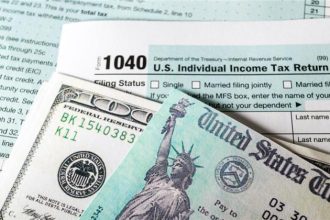Credit Sesame examines whether the bull market upward momentum will persist in 2025 amidst rising inflation, high stock valuations, and shifting consumer spending.
Investors enjoyed significant gains last year as falling interest rates and a resilient economy drove the stock market to new record highs, fueling a bull market. In a bull market, when stock prices steadily rise, this upward momentum often attracts more investors eager to capitalize on the trend. However, bull markets don’t last forever.
Will 2025 mark the end of this streak? Predicting when investor confidence will wane is impossible, but cautious investors should note that some of the factors fueling the stock market’s growth in recent years could now start to act as headwinds.
Bull market yields best back-to-back years in decades
The S&P 500 finished 2024 up 23.31%. On the heels of a 24.23% gain in 2023, that gave the stock market back-to-back annual gains of more than 20%. How unusual is that? The last time the S&P 500 accomplished that feat was in 1997 – 1998. Here are some of the things that have fueled the current bull market:
- The stock market was coming off a bad year in 2022 when the S&P 500 lost 19.44%. The resulting low prices gave stocks plenty of room to bounce back.
- Falling inflation and interest rates made stocks more attractive as long-term investments.
- Consumers have been willing to borrow heavily so they can continue spending. This has helped the economy grow for ten quarters in a row.
These factors have served the market well over the past two years. However, there are reasons to question whether that success can continue.
Stock prices are already high in the bull market
With strong increases in 2023 and 2024, the S&P 500 ended 2024 at a record monthly high. Still, just because the stock market has increased significantly doesn’t mean it’s overpriced. To put stock prices in perspective, stock analysts often look at them relative to company earnings.
Over the past two years, stock prices have risen by 53.19%. Reported earnings of S&P 500 stocks over that same time are up by 42.38%, and operating earnings are up by just 21.34%.
In other words, the prices people are paying for stocks have gone up faster than the ability of those companies to make money from their businesses. As a result, the price-to-earnings ratio of the S&P 500 has risen from 22.23 to 28.16 in the same period.
A high price-to-earnings ratio means that investors expect earnings to grow strongly in the future. If all goes well, the impact on the stock market will be muted because people have already priced the expectation of good news into those stocks. On the other hand, a high price-to-earnings ratio gives stocks farther to fall if there’s a setback.
Inflation and interest rates may create a headwind
One reason stocks rose faster than earnings last year is that inflation and interest rates both eased. Lower inflation and interest rates increase the value of future stock earnings. In theory, this should make those stocks worth more.
However, as 2024 closed, many people started to revise their view of inflation. For example, the Federal Reserve raised its estimates of where inflation will be over the next couple of years. Bond yields, which had been falling throughout the middle of the year, began to rise as investors thought about the inflationary impact of trade wars and a more restricted labor supply.
Stocks like low inflation and interest rates. For much of 2024, they had the wind at their back as those things fell. Now, investors are concerned that rising inflation and interest rates may become a headwind in the year ahead.
A significant portion of consumers are tapped out
Finally, another key driver of the bull market has been the willingness of consumers to take on debt to continue to spend. There are signs that this source of consumer demand may be petering out, at least for a significant segment of the population.
The dollar volume of defaults on credit card debt through the first 9 months of 2024 was 50% higher than in the same period a year earlier. It had reached its highest level since 2010, when the economy was still recovering from the Great Recession.
Certainly, plenty of consumers are ready and able to continue spending. However, a growing share of lower-income and lower-credit-score consumers struggle to pay their bills. Notably, consumer confidence plunged in December 2024, suggesting the spending spree may end.
Many factors impact the economy and the stock market, not all of which can be foreseen. However, it does seem that some of the forces that helped investors and consumers in 2024 may not be so favorable in 2025.
If you enjoyed Will the bull market continue into 2025? you may like,
Disclaimer: The article and information provided here are for informational purposes only and are not intended as a substitute for professional advice.
Read the full article here
















